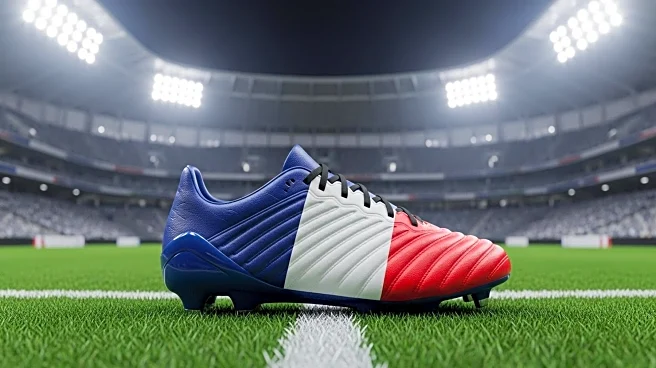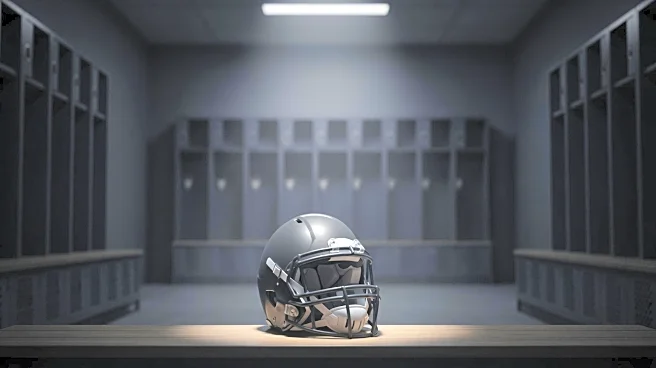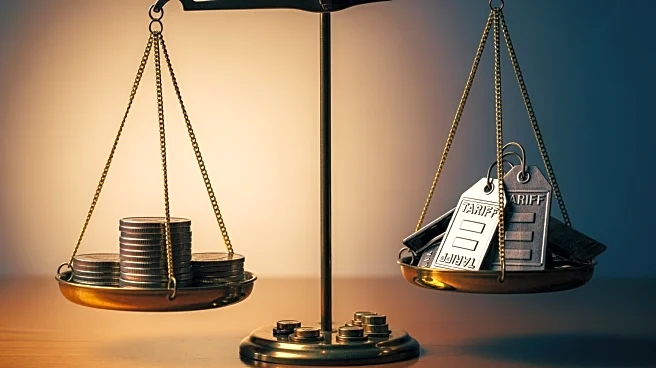What's Happening?
France captain Kylian Mbappé will not participate in the upcoming World Cup qualifier against Iceland due to a right ankle injury, as confirmed by France's football federation (FFF). The Real Madrid star sustained the injury during France's recent 3-0 victory over Azerbaijan, where he was forced to leave the field in the 83rd minute. This injury follows a previous incident where Mbappé hurt the same ankle while playing against Villarreal. The national coach, Didier Deschamps, has confirmed that Mbappé will return to Madrid and will not be replaced for the match against Iceland. France, who were runners-up in the 2022 World Cup, have started their qualification campaign for the 2026 edition strongly, winning all three of their games in Group D.
Why It's Important?
Mbappé's absence is significant for both the French national team and Real Madrid. As a key player, his injury could impact France's performance in the World Cup qualifiers, although they have been successful so far. For Real Madrid, his return to the club for recovery is crucial, as they rely heavily on his contributions on the field. The situation highlights the challenges teams face with player injuries during international breaks, affecting both national and club-level competitions. The decision not to replace Mbappé for the Iceland match suggests confidence in the remaining squad's ability to maintain their winning streak.
What's Next?
France will proceed with their World Cup qualifying campaign without Mbappé, focusing on maintaining their perfect record in Group D. Real Madrid will likely prioritize his recovery to ensure he returns to full fitness for upcoming club matches. The French team will need to adapt their strategy to compensate for the absence of their star forward, while Real Madrid will monitor his progress closely. The situation may prompt discussions on player workload and injury prevention, especially during international breaks.
Beyond the Headlines
Mbappé's injury raises broader questions about the physical demands placed on top athletes, particularly those who play for both club and country. The incident may lead to increased scrutiny on how injuries are managed and the support systems in place for player recovery. Additionally, it could influence discussions on scheduling and the balance between club commitments and international duties, aiming to minimize injury risks.









